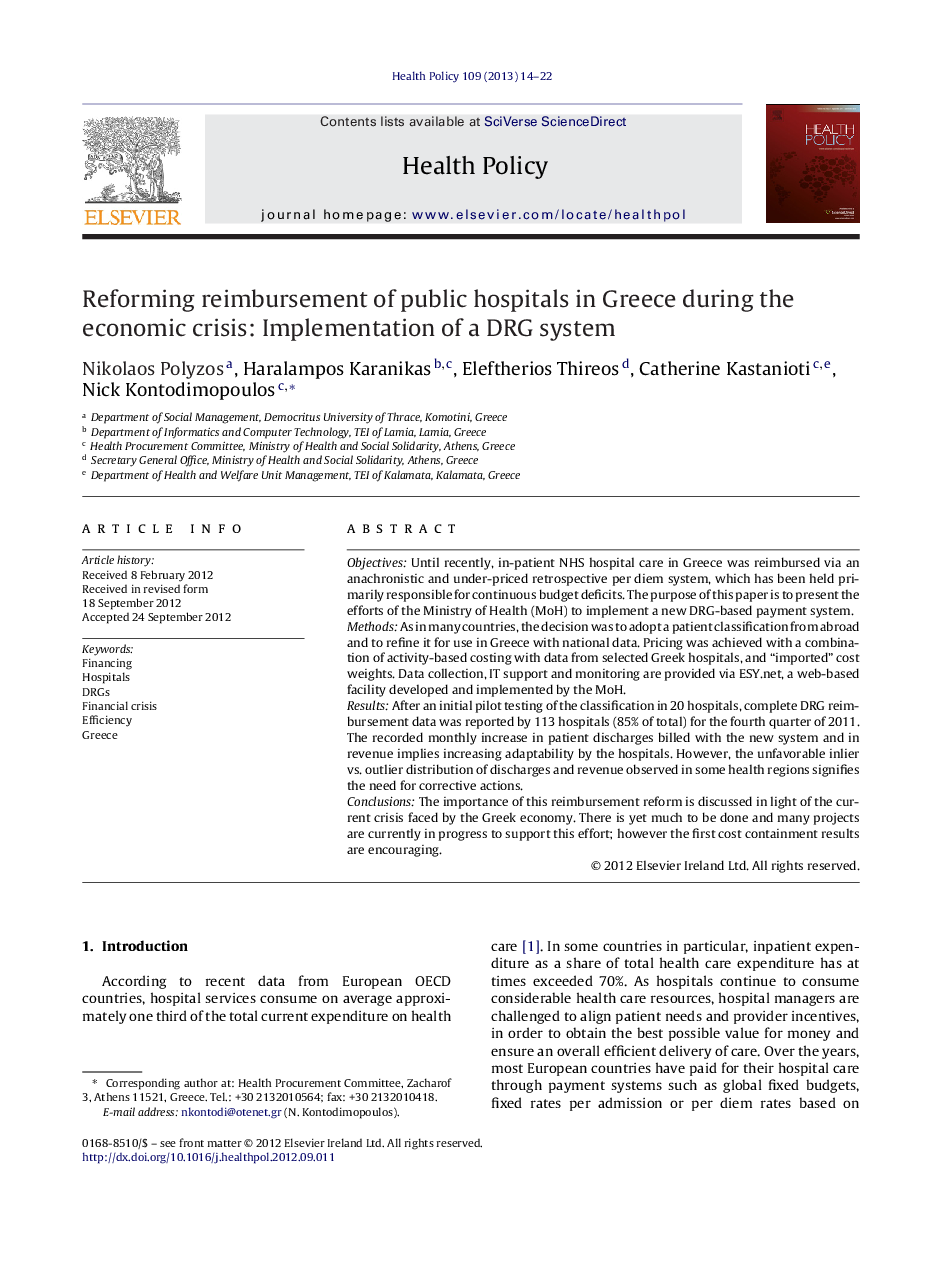| Article ID | Journal | Published Year | Pages | File Type |
|---|---|---|---|---|
| 4197840 | Health Policy | 2013 | 9 Pages |
ObjectivesUntil recently, in-patient NHS hospital care in Greece was reimbursed via an anachronistic and under-priced retrospective per diem system, which has been held primarily responsible for continuous budget deficits. The purpose of this paper is to present the efforts of the Ministry of Health (MoH) to implement a new DRG-based payment system.MethodsAs in many countries, the decision was to adopt a patient classification from abroad and to refine it for use in Greece with national data. Pricing was achieved with a combination of activity-based costing with data from selected Greek hospitals, and “imported” cost weights. Data collection, IT support and monitoring are provided via ESY.net, a web-based facility developed and implemented by the MoH.ResultsAfter an initial pilot testing of the classification in 20 hospitals, complete DRG reimbursement data was reported by 113 hospitals (85% of total) for the fourth quarter of 2011. The recorded monthly increase in patient discharges billed with the new system and in revenue implies increasing adaptability by the hospitals. However, the unfavorable inlier vs. outlier distribution of discharges and revenue observed in some health regions signifies the need for corrective actions.ConclusionsThe importance of this reimbursement reform is discussed in light of the current crisis faced by the Greek economy. There is yet much to be done and many projects are currently in progress to support this effort; however the first cost containment results are encouraging.
